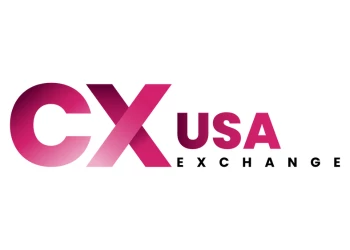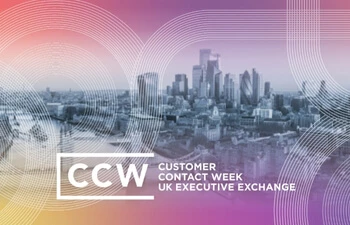Five brands that put ethics at the heart of their business
With today’s customers placing a high importance on ethical brands, CX Network rounds up five companies making a difference
Add bookmark
When brands have missions and values customers take note – and there is a growing body of research to support the trend.
In fact, CX Network’s own research has found that 80 percent of CX practitioners have seen buying decisions influenced by the consumer’s awareness of a how ethical a brand is. And with consumers now wise to ethics-washing it is no longer enough simply to pay lip service to social and environmental issues.
Whether it's Fairtrade certification, a stance on animal testing, or a industry-leading approach to renewable energy, CX Network showcases five major brands that have put ESG at the heart of their operations.
Fairphone
On a mission to create sustainable, ethical smartphones, Dutch social enterprise Fairphone was launched by Bas van Abel in 2013. Today it is headed by CEO Eva Gouwens, who specializes in leading ethical brands and previously worked at Tony’s Chocolonely.
Developing the world’s first fair trade smartphone meant avoiding the conflict minerals typically used in smartphone manufacture. Fairphone achieved this by choosing ethical ways of sourcing materials like tin, tantalum, and tungsten and working on its supply chain to include certified Fairtrade gold.
The company’s stance on human rights also extends to its employees, including a Worker’s Welfare Fund and a living wage for factory workers. As well as using recycled materials where it can, Fairphone introduced its first modular smartphone, the Fairphone 3, in 2019. The modular design of Fairphone 3, as well as that of subsequent versions released to market, allows owners to upgrade or repair their phones at home so the devices can last for longer.
Patagonia
Yvon Chouinard, founder and owner of outdoor clothing brand Patagonia, recently announced he was signing over 98% of the company’s stock to a newly created charitable trust explicitly created to fight climate change (note – the remaining 2% is going to the Patagonia Purpose Trust).
Although highly unusual for billionaire business owners, the decision probably didn’t come as a complete surprise to existing fans of the company. Passionate climber Chouinard initially developed equipment for what he called ‘clean climbing’, for example lightweight nuts that jut as effective for climbing but cause less damage to rock surfaces.
Patagonia was founded in 1973 to sell outdoor clothing, and as far back as the 1980s was starting to explore sustainable materials and production methods – it now supports the upcycling of disused fishing nets into hat brims and clothing materials.
The brand famously took out an advert on Black Friday 2011 headed ‘don’t buy this jacket’ and urging consumers to speak out against overconsumption.
Transparency throughout its supply chains is another important objective, and Patagonia’s Supply Chain Environmental Responsibility Program measures and decreases the environmental impact of manufacturing the brand’s products.
T-Mobile US
The mobile network operator is the first – and so far only – US wireless provider to set a goal to use 100% renewable energy for its full electricity needs, from offices to networks.
The brand developed this goal in 2018 and had achieved it by the end of 2021, using strategies like a green direct program and other renewable power agreements. It and was also the first communications services provider to set science-based targets that addressed its carbon emission levels.
As well as achieving its goal to be an energy-efficient network provider, T-Mobile runs initiatives for reducing waste and conserving energy across all its facilities and sites. Topping Green America’s Wireless Scorecard for three consecutive years, the brand also got a top score in the 2021 CDP Climate Change questionnaire.
In terms of what’s next for T-Mobile, there are plans for even more renewable energy projects, as well as looking at the potential for solar energy, and investing in clean energy organizations.
TOMS
Shoe manufacturer TOMS is “in business to improve lives”. The brand invests one-third of its profits in grassroots organizations, whether that’s giving cash to the causes that need it or working in partnership with communities. Contributing to grassroots groups means the support can be tailored to specific needs.
As well as ongoing support for grassroots good, TOMS has been in partnership with the charity Save the Children since 2011. For every pair of TOMS sold, the company donates one pair to a child in need and supports employees to get involved in Save the Children events.
TOMS advertises six key commitments to helping the environment for example by working to increase the company’s B Corp score (measuring its social and environmental performance), making its packaging as sustainable as possible (it currently uses a minimum of 80% recycled materials), and sourcing 100% sustainable cotton by 2025.
Lush
Global handmade cosmetics brand Lush is best known for taking a stand on animal testing.
It doesn’t test itself, neither finished products nor ingredients, and it also ensures its partners don’t test on animals. One common contentious issue when it comes to animal testing is when brands claim to be against it but continue to sell products in places where animal testing is required by law. Lush doesn’t do that either.
As well as being free from animal testing, Lush products have little to no plastic packaging with its famous bath bombs and shampoo bars are sold completely unpackaged. Furthermore, 90 percent of what little packaging is used is recycled, and the brand says it’s working on the remaining 10 percent.
The Lush Ethical Charter covers a lot, from fair employee wages to fair business dealings with suppliers. The Charter states that all Lush licensed territories should campaign at least once a year on one of the brand’s core values - animal rights, human rights, and environmental protection. In the UK this has seen MPs lobbied on hunting laws and proceeds from certain products donated to anti-hunting organizations.






















